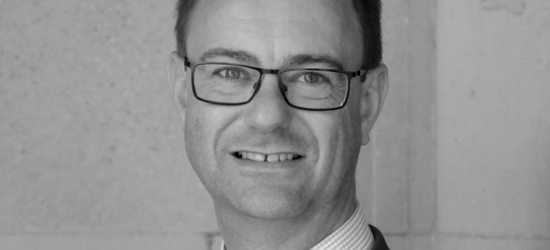Asset managers have a chance to really impact the real economy with their commitment to net zero. The Net Zero Asset Managers Initiative now has 73 signatories and one third of assets in the industry committed. It’s reached tipping point, says one of the initiatives’ founders Ed Mason.
The Net Zero Asset Managers Initiative has gained critical mass and managers who haven’t signed up are now looking to get inside the tent.
“The theory of change shows that 25 per cent is what is needed for a breakthrough moment,” says Ed Mason, director of engagement and impact reporting at Generation Investment Management who was instrumental in setting up the initiative. “We have over a third of assets in the asset management industry represented, we have passed through that. Managers who are not part of it are now looking at it.”
The initiative only launched in December last year and is a commitment to support the goal of net zero GHG emissions by 2050 or sooner. It now has 73 signatories with $32 trillion in assets under management, and importantly the large index managers have signed up in the latest tranche of signatories
“LGIM played a really important role in this. One of the big names in passive asset management, showed it was possible to do this in passive management and that paved the way for Blackrock and Vanguard to come in,” Mason said. “The moment was right, the market was really ready for this. A lot of managers were thinking about net zero but didn’t know how to frame a commitment and what was credible.”
At the core of the commitment is for managers to work in partnership with their asset owner clients on decarbonisation goals, and the initiative divides the commitment into two parts.
Initially managers are asked to set an interim target for the proportion of assets to be managed in line with the goal of net zero emissions by 2050 or sooner. And then they commit to reviewing that target at least every five years with a view to ratcheting up the proportion of AUM covered until 100 per cent of assets are included.
“It has been quite carefully constructed to meet the needs of asset managers and be as ambitious as possible,” Mason says. “The third leg is accountability – managers have to report each year on this and we are working to integrate that into the PRI reporting system. Managers’ commitments will be public, and we want managers to be ambitious.”
Impact
The overarching aim of the initiative is to drive change in the real economy.
“This is not about carbon tilting a small number of portfolios – the only way for the commitment to be achieved in full is to have the real economy be net zero,” says Mason, who has been director of engagement and impact reporting at Generation since June last year. “We are seeking to achieve net zero in the real economy and this commitment from managers will accelerate the trends already under way for capital allocation for net zero. It will become even more difficult for companies that are misaligned with a net zero pathway.”
Mason reiterates that divestment is not the first option for managers and they would rather work with companies to transition their future to the net zero economy.
“We need all companies to envision their future in the net zero economy and have a sense of how their companies will thrive.”
Generation set an ambitious target last July which was to reach net zero by 2040 with an interim target of 50 per cent reduction in emissions by 2030.
It will report on an ongoing basis on the alignment of the portfolio which is already low-carbon and well below benchmark at about 25 per cent of benchmark emissions.
As part of that progress it is developing forward-looking metrics for portfolio alignment with the Paris agreement and will use that as its primary tracking mechanism.
David Blood, Generation co-founder with Al Gore, is leading a collaborative effort on forward looking metrics in the COP26 finance workstream. The development of the metrics are also linked to the TCFD work on forward looking metrics for investors to further look at best practice in methodology and accelerate progress with this discipline.
“Investors are more conscious that while carbon footprinting is good, it is backward looking. You need a sense of where companies are heading and the future projection and how to exert influence.”
Mason saw the power of an alliance when he was head of responsible investment at the Church Commissioners for England, a position he held for 11 years before joining Generation last year.
The Net-Zero Asset Owner Alliance was founded in September 2019 and now has 35 asset owner members with $5.5 trillion of assets.
“We saw the power of an alliance but there was no manager equivalence so there was a real gap in the market,” Mason says.
When Generation set its own net zero target in July last year, it also began to think about how to catalyse that ambition for the wider industry.
“We’re a boutique with big ambitions and we can only realise those ambitions by working with others. We held a series of convenings with our peers led by David Blood to discuss what a robust, ambitious commitment would be.”
The group also worked with the Champions for COP26 team, the PRI and the IGGCC in the development of the initiative.
To learn more about COP26 and how government, business and investors can mobilise around climate change listen to the podcast conversation with Nigel Topping, who was appointed by the UK Government as the High Level Climate Action Champion for the United Nations climate talks, COP26.



